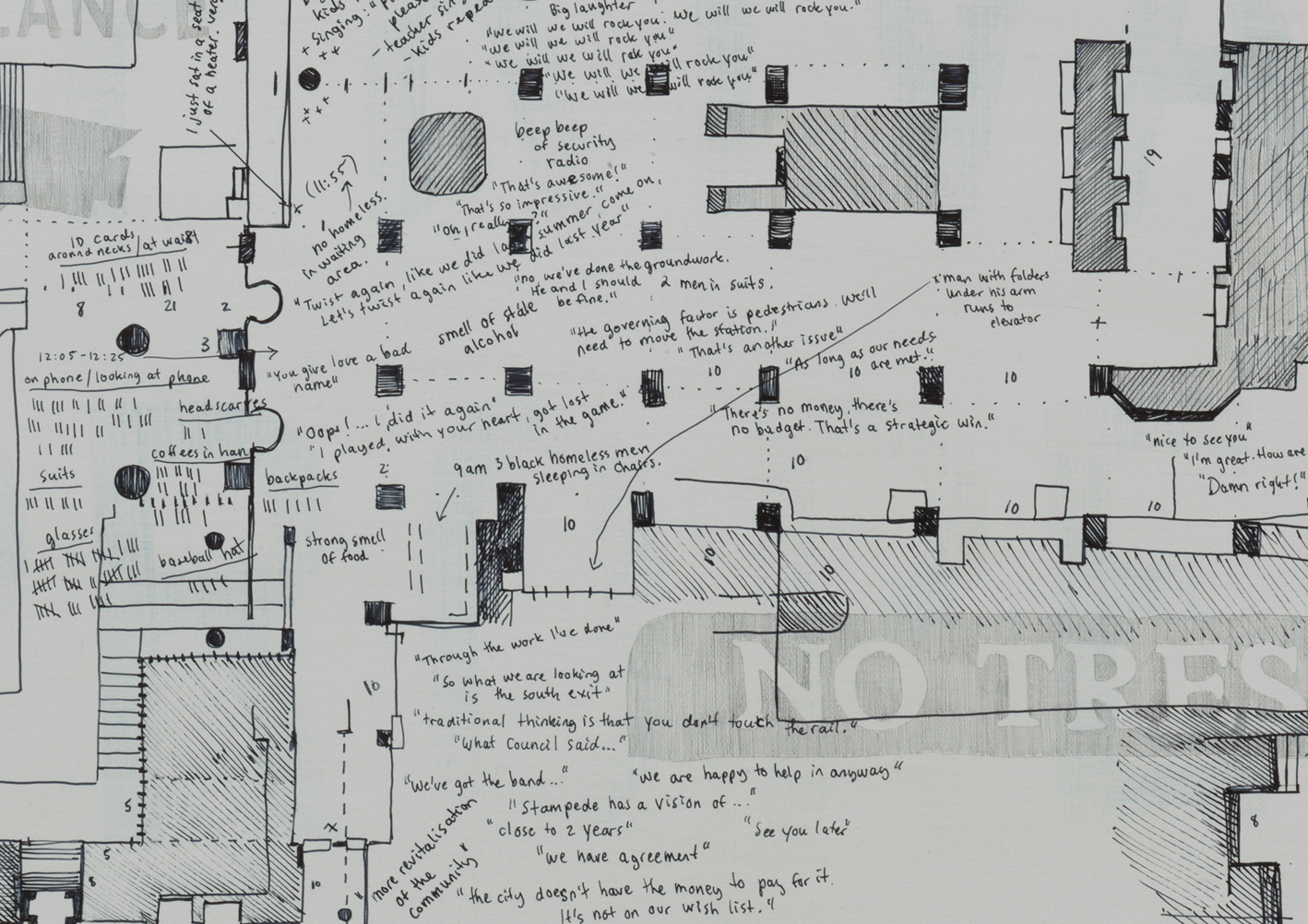PHOTO ESSAY
Social Encounters in Quotidian Spaces—Larrisa Fassler
By mapping public spaces, an artist investigates symbiotic relationship between people and places
Kotti 2008
Kotti 2010
Kotti 2014
Schlossplatz III
Schlossplatz V
Schlossplatz. VI
Civic Centre I - 1
Civic Centre I - 2
Civic Centre II - 1
Civic Centre II - 2
For over a decade, I have explored the urban public realm as my artistic practice, examining the symbiotic relationship between people and places. I am particularly interested in the way in which public spaces affect people, and how our understanding and use of public space changes us physically, socially, and emotionally.
In 2005, I began to study public spaces in Berlin, concentrating on quotidian sites such as transportation hubs and social housing. I then expanded my practice to other cities to confront different cultural conceptions of public space: London, Paris, Istanbul, and in 2016, Calgary, Canada.
While I do utilize common forms of architectural representation such as models and plans, my work differs fundamentally from conventional planning methods. I employ subjective measures to survey the public realm: I walk the edges of a place, counting my steps, recording my corporeal experience. I visit a chosen place every day, at different times of the day, for anywhere from one to six hours, producing hundreds of small sketches. Mapping a public space, I create small fragmented floor plans of every corner, level, passageway, stairwell, elevator, and entrance. I also note in detail what passersby wear and what they are doing, as well as any sounds, colours, smells, and movements, including those of security guards or police if present. I chronicle all visible security cameras, and all signs, posters, advertisements, billboards or graffiti in the public space. I then use this mass of information to create meticulous records of urban social environments. The result is a series of large-scale drawings and paintings documenting the use and control of public spaces in cities.
All Images: Courtesy of the artist.
Larissa Fassler is a Canadian visual artist based in Berlin, Germany and she works on the public spaces of cities and what these spaces tell us about people and societies more generally. Civic Centre was exhibited at Esker Foundation in 2016.











